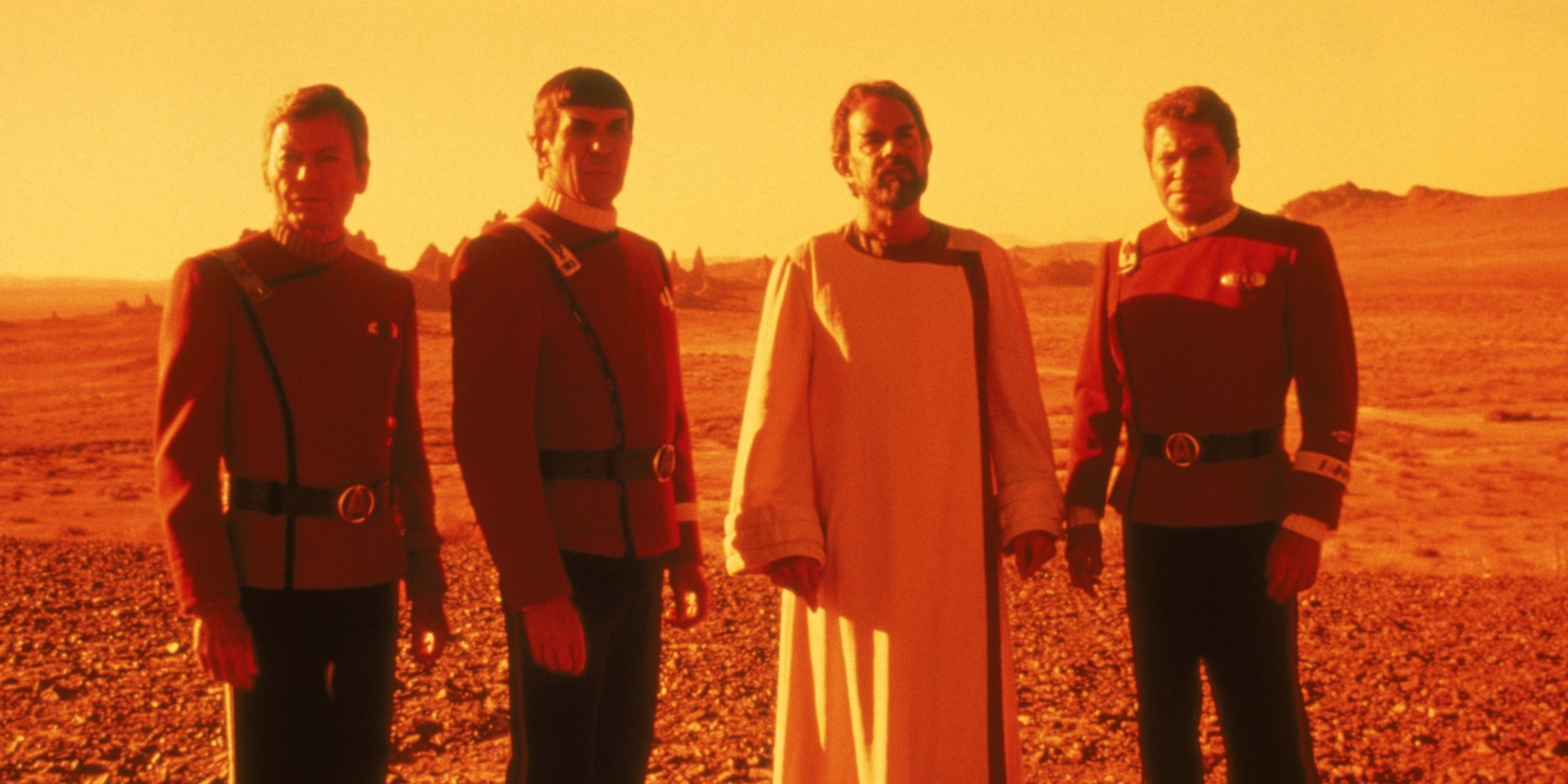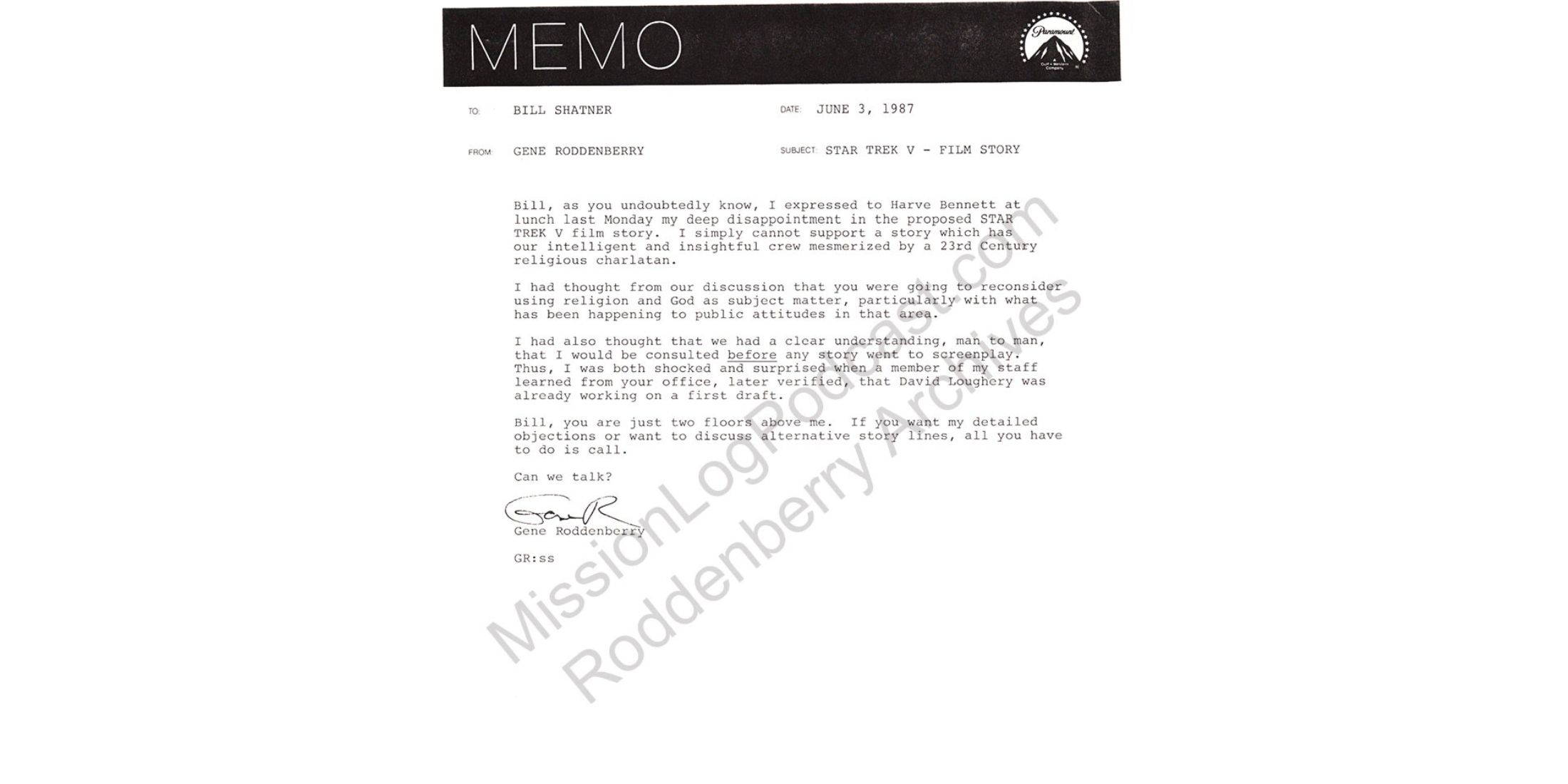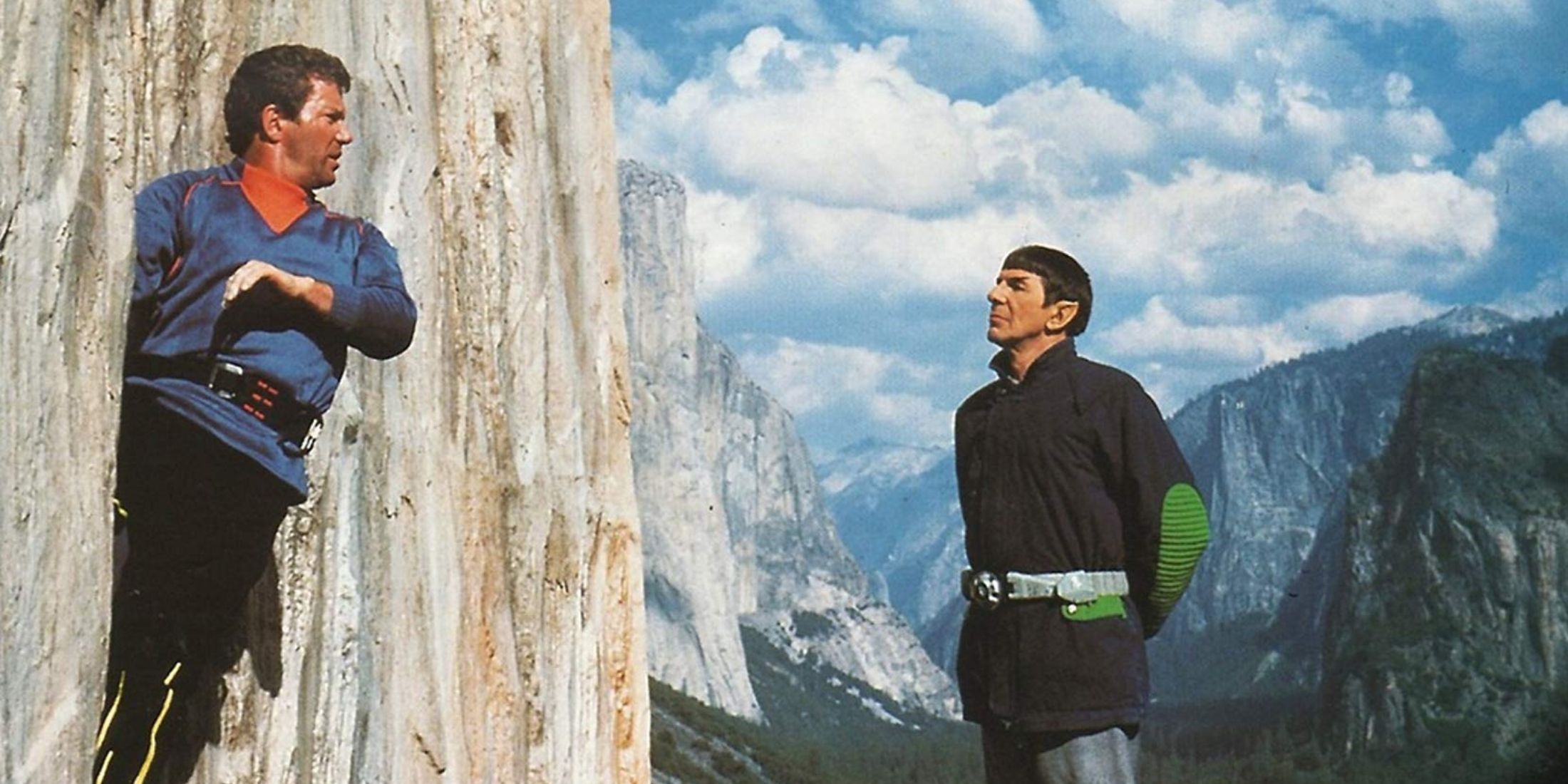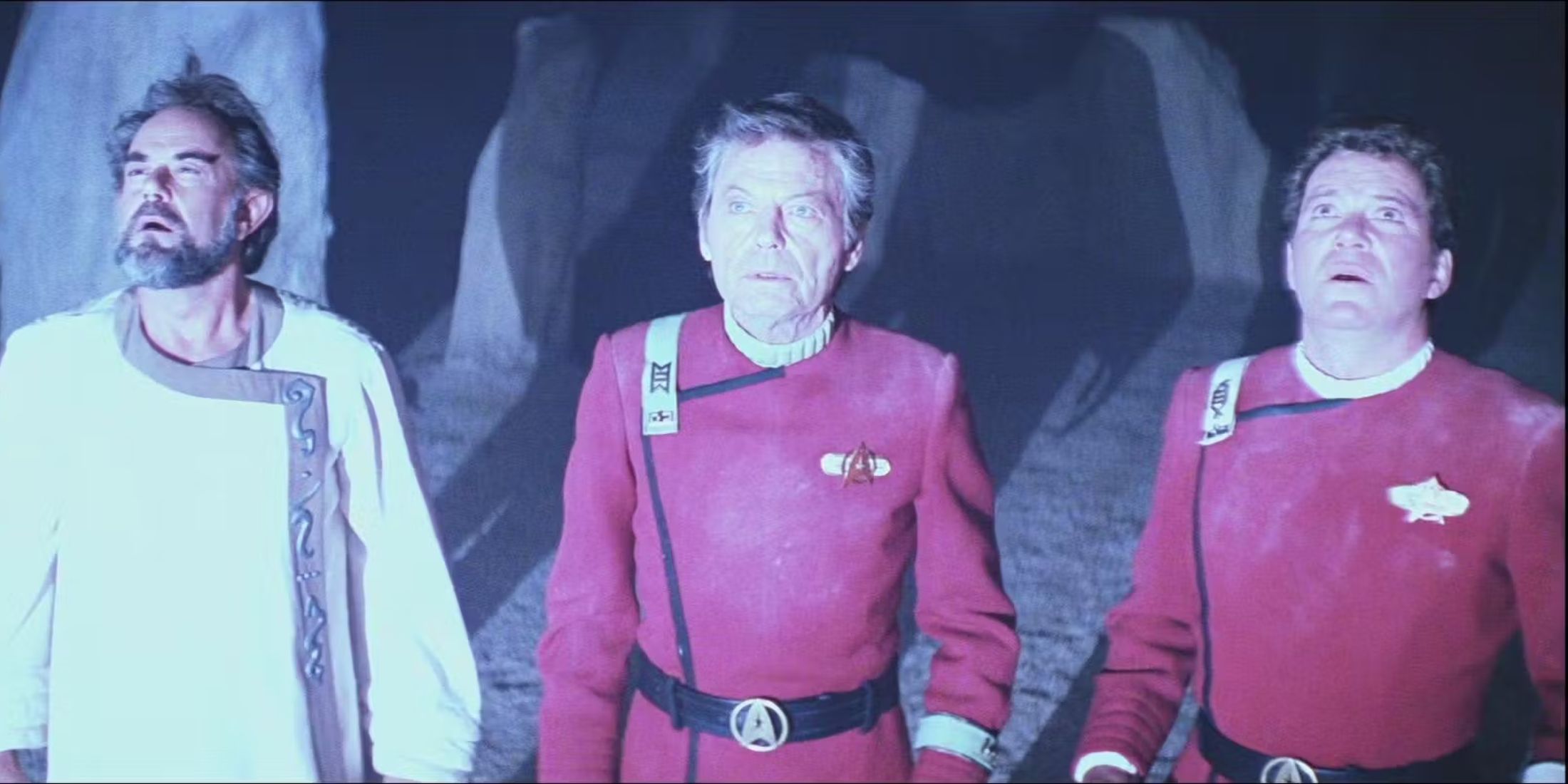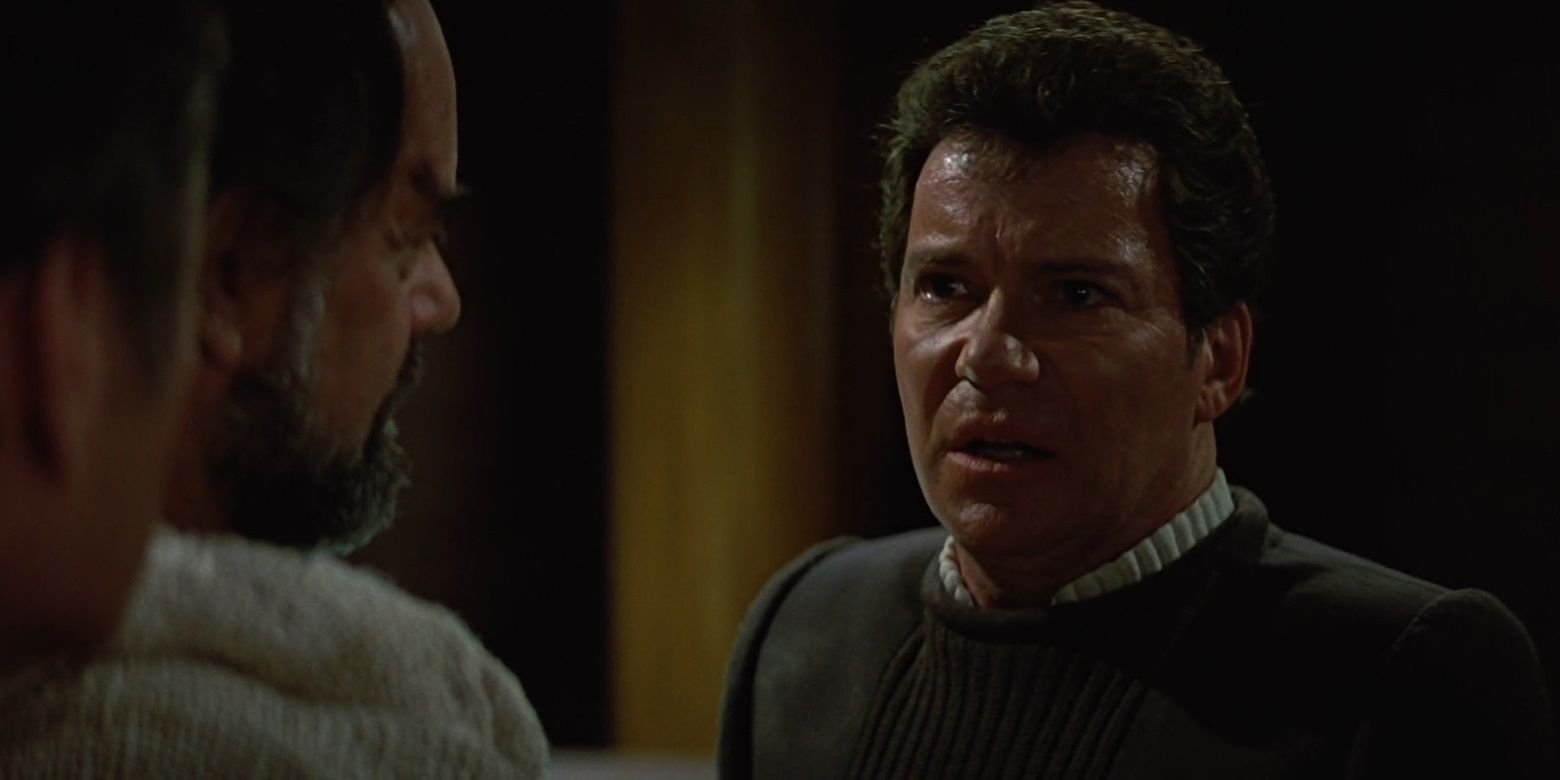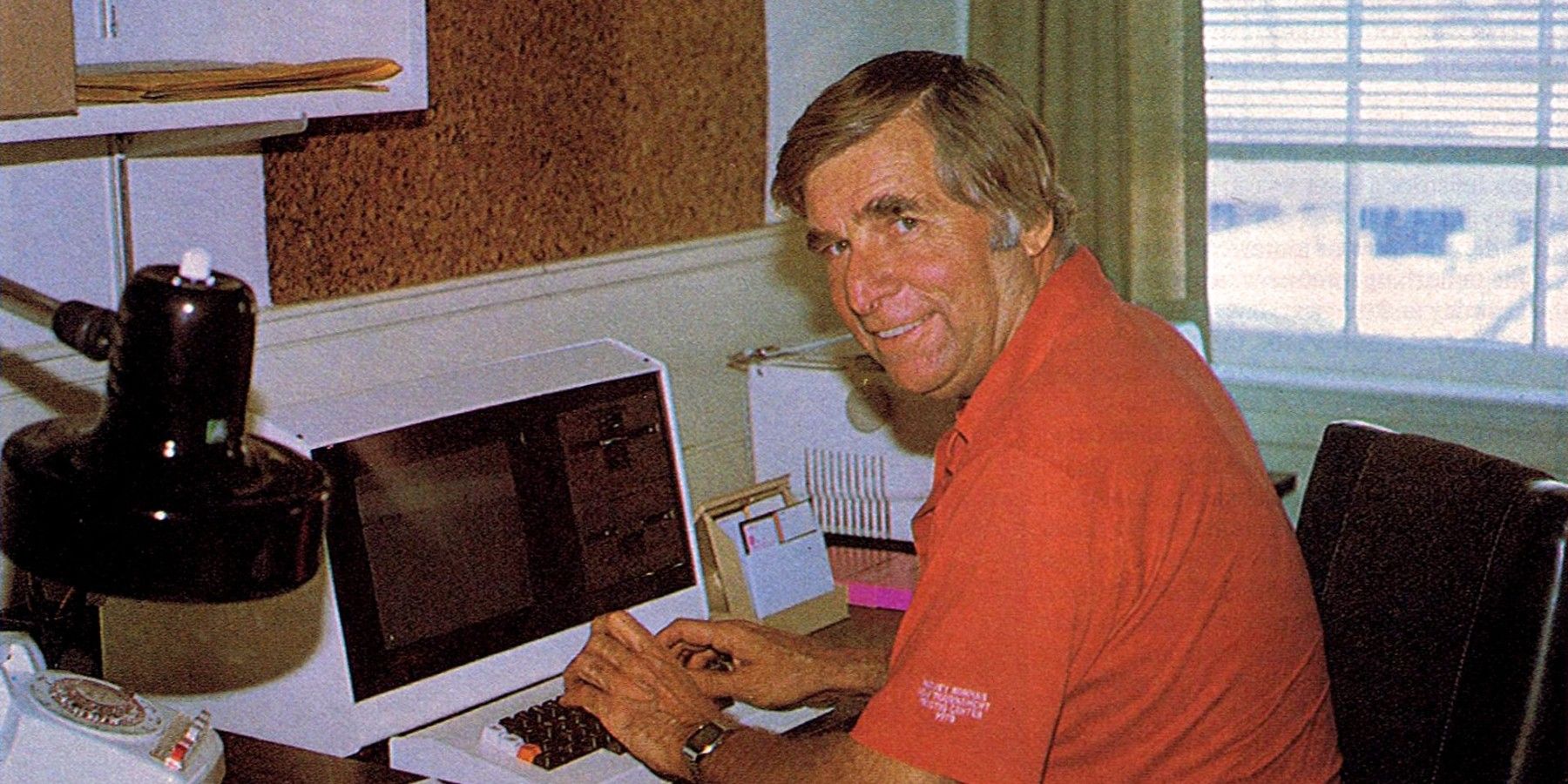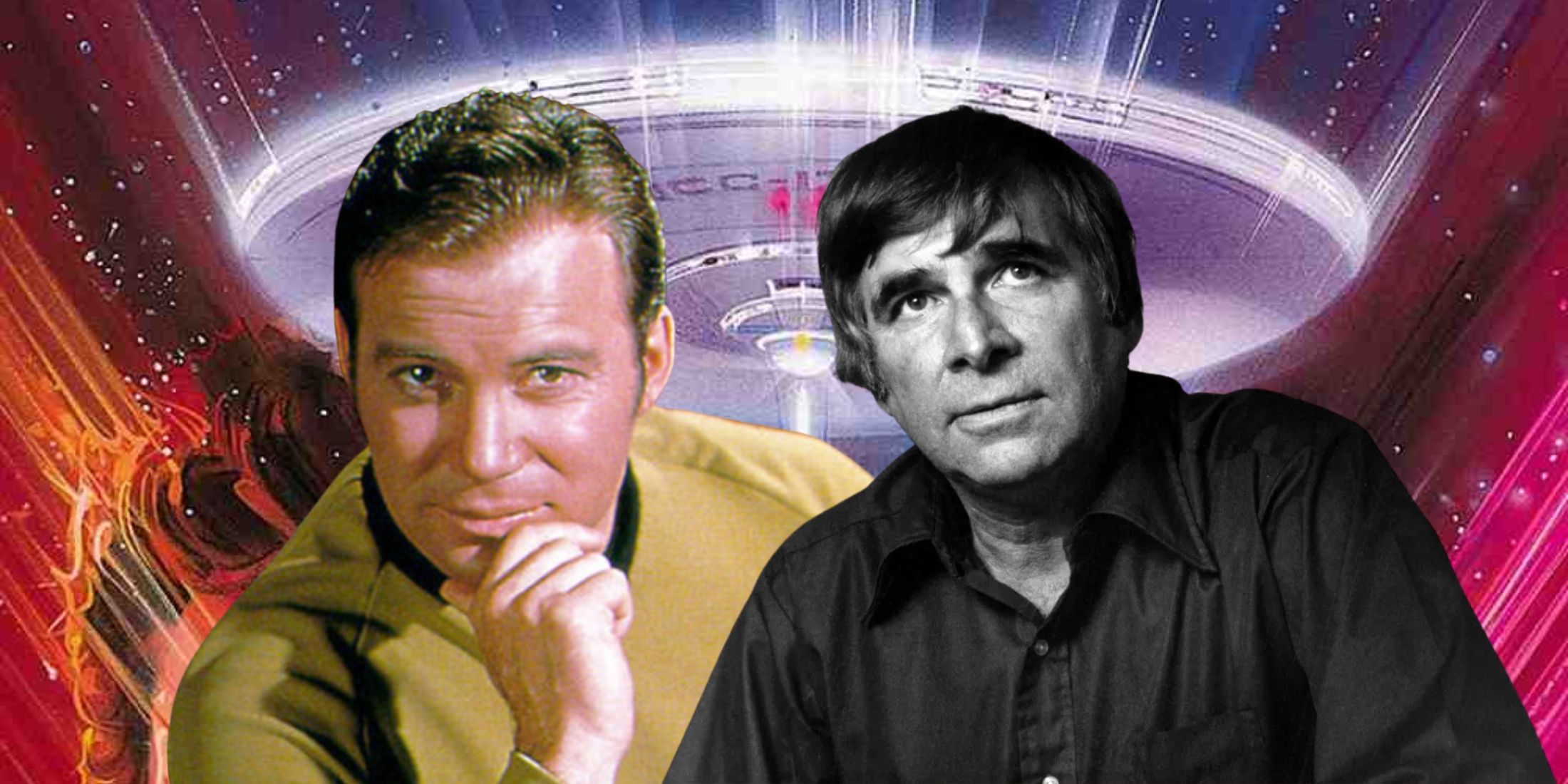
The fifth installment of Star Trek, titled “The Final Frontier,” was initially planned to venture into realms unexplored by any sci-fi series. However, it ended up in a place that was never meant for it. The making of this debatable movie was marked by a power struggle between the creator of Star Trek, Gene Roddenberry, and director as well as lead actor William Shatner, regarding the plot’s direction.
By 1987, the Star Trek universe had expanded significantly. The launch of “The Next Generation” was imminent, while the original cast continued to enthrall audiences at the cinema. William Shatner, always the enterprising Captain Kirk, managed to secure a deal allowing him to direct the fifth Star Trek movie. However, his innovative concept – one that delved into religious motifs, a divine being, and the crew being deceived by a cosmic prophet – provoked a strong reaction from Roddenberry, the creator who had set sail the USS Enterprise in a future devoid of religion.
Gene Roddenberry Had A Post-Religious Vision For The Star Trek Franchise
Instead of merely being the inventor of Star Trek, Roddenberry served as its philosophical guide. He imagined a future that was sculpted by scientific exploration, rational thought, and advancement. The Federation wasn’t just a political union; it symbolized an intellectually mature, post-religious society. Roddenberry harbored the conviction that humanity, having endured centuries of strife and dogma, would eventually transcend its reliance on religion altogether.
The fundamental essence of Star Trek is deeply rooted in its core principles. In the original series episode titled “Who Mourns for Adonais?”, the crew comes across a being who introduces himself as the Greek deity Apollo, yet they swiftly regard him as a powerful, yet imperfect alien. Similarly, in “The Apple,” the crew discovers a primitive society worshipping a machine known as Vaal. Kirk eventually disables this machine and inspires the people to think independently.
Roddenberry strongly disliked religion, going beyond just using it as an allegory in his work. He was open about being an atheist and often criticized what he saw as the excessive glorification of spirituality in media. So, when Shatner proposed a story for Star Trek 5 where the crew gets lured by a religious figure and embarks on a quest to find God, it felt like a violation of the fundamental principles of Star Trek to Roddenberry. This disagreement led to one of the most uncomfortable and significant conflicts in the history of Star Trek, as Roddenberry communicated his disapproval to his long-time collaborator.
Roddenberry Wrote A Memo That Challenged Shatner’s Star Trek 5
The memo dated June 3, 1987, discovered by The Mission Log Podcast, appears calm on the outside but hides a simmering anger beneath. Addressed to Shatner, it clearly expresses Roddenberry’s firm disapproval of the film’s idea and, most significantly, his concern that the project had been developed without his involvement. Despite the polite tone, the underlying frustration is evident.
Hey Bill, just wanted to let you know that during lunch with Harve Bennett last Monday, I shared my profound dissatisfaction about the proposed STAR TREK V film’s storyline. Frankly, I find it hard to back a tale where our wise and perceptive crew, for some reason, seem captivated by a 23rd-century spiritual impostor.
Roddenberry was taken aback, as he discovered that not only did the proposed story incorporate religious elements, but screenwriter David Loughery had started drafting it – a fact Roddenberry found out indirectly from someone within his own team. To him, this wasn’t merely a dispute over plot points; it felt like a breach of the deeper trust he believed he shared with Shatner.
It seemed to me, based on our conversation, that you might choose to refrain from discussing religion and God as a topic, given the recent shifts in public sentiment towards this subject.
Previously, it was mutual between us that I should always be informed if any tale was to be transformed into a screenplay.
He conveyed his disappointment not only about the creative approach but also the perceived lack of openness. Roddenberry felt he deserved to be involved, not just as a ritual, but as a guardian of the franchise’s thematic consistency. The memo doesn’t explode with anger; rather, it slowly boils, making a subtle argument for why he should have been present from the beginning. And considering how the movie ultimately turned out, maybe he should have been.
William Shatner’s Vision For The Final Frontier
William Shatner’s idea for Star Trek 5 initially revolved around a daring premise: what if an individual seized control of the Enterprise not through logic or force, but by stirring faith? His initial concept delved deeper into religious symbolism than the ultimate movie. The character Sybok would guide the crew on a spiritual pilgrimage in search of a genuine deity, not just a being feigning divinity under false pretenses.
Initially, the character at the edge of the universe portrayed by Shatner wasn’t just a cunning trickster; it was presented as God itself. Captain Kirk wouldn’t confront this figure because it was deceitful, but because it required unquestioning loyalty. However, studio executives and fellow producers, concerned about alienating religious viewers, strongly objected to this portrayal. Consequently, Shatner was forced to make concessions in the script.
In the final version of the film, the concept became more diluted compared to the original. Sybok, portrayed by Laurence Luckinbill, was transformed into Spock’s half-brother, and his abilities were changed to emotional healing instead of manipulating through religion. The ultimate entity discovered at the end of the journey turned out to be a highly powerful alien disguised as God, aligning more with Roddenberry’s concept but retaining the imagery of a religious revelation that Roddenberry himself might have avoided.
In simpler terms, Shatner initially succeeded in conveying a tale centered around faith and conviction. However, what could have been an extraordinary, transcendent piece got diluted due to studio constraints, financial limitations, and internal opposition. The final product became less daring and more confusing as a result.
Star Trek 5 — What Went Wrong?
In 1989, when Star Trek 5 first appeared, the reaction was rapid and predominantly unfavorable. Critics criticized the movie for its inconsistent mood, slow pace, and poor special effects. The storyline—wherein the Enterprise is seized by Sybok, who guides the crew beyond the Great Barrier to locate God—pushed the boundaries of even the flexible logic of Star Trek. Long-term fans found it illogical that a team of experienced explorers would so easily be deceived as shown in the film. To many Star Trek enthusiasts, the final product felt less like a genuine Trek installment and more like a weak imitation of Dune.
Unfortunately, the movie encountered practical constraints that hindered its potential. Shatner initially envisioned a grandiose ending featuring rock monsters and intricate space visuals. However, financial constraints necessitated downscaling, resulting in an anticlimactic finish—merely a display of blue light and a face floating in the sky.
In cinemas, Star Trek 5 debuted as the top-earning film initially, but it swiftly declined in earnings, earning considerably less than its earlier versions. Critics such as Roger Ebert criticized it as a “chaotic mess,” and even dedicated fans, known for their unwavering loyalty, expressed their dissatisfaction. On most review platforms, it’s the lowest-rated film of the original-cast series.
Later on, even Shatner acknowledged that the final result didn’t meet his initial expectations, largely because of financial limitations and meddling from the studio. However, by this time, the consequences of Roddenberry’s apprehensions were already evident in the movie version that was released.
Gene Roddenberry’s Marginalized Influence Over The Star Trek Franchise
When the filming of “The Final Frontier” commenced, Roddenberry’s involvement in the movie series had significantly diminished to the point where he was merely acting as a “Creative Consultant.” In layman’s terms, this role essentially meant that they would only contact him if they needed his input.
In essence, Roddenberry was up against an insurmountable challenge. The studio had already sealed the deal with Shatner. Producer Harve Bennett, who significantly boosted the franchise with “The Wrath of Khan,” was onboard. Paramount Pictures aimed for a grand, daring “Star Trek” movie following the success of “Star Trek 4: The Voyage Home.” Consequently, it was Shatner who got to create the film he envisioned, while Roddenberry was relegated to a mere footnote.
Roddenberry’s Final Word and The Star Trek Philosophy
Despite being known as the least impressive of the original Star Trek movies, Star Trek 5 maintains a unique position within the series. It’s daring, quirky, and genuinely emotional. However, it also signifies a time when Star Trek veered off course, a period when Gene Roddenberry’s guidance was most valuable.
The memo wasn’t solely focused on one narrative; it delved into the essence of Gene’s cherished work. Roddenberry felt that Star Trek was not a platform for questioning “Does God exist?”, but rather a space to explore “What heights can humanity reach when it stops pondering that question?
As a fellow movie buff, I find myself compelled to reach out and engage in conversation with you, Captain. In his final words, Roddenberry subtly extended an olive branch while also expressing a sense of urgency to gain your support.
Looking back, Gene Roddenberry’s refusal to participate in Star Trek 5 seems less like stubbornness and more like the fervor of a man safeguarding his ideals, even when they didn’t always translate well on screen. Roddenberry’s vision of a future devoid of religion and guided by reason gave Star Trek its backbone, but his strict rules sometimes made the stories feel overly sanitized. On the other hand, when the franchise strayed too far from his original vision – as some argue it did in The Final Frontier – it risked losing its essence. As one fan once said, Star Trek is at its best when Roddenberry’s core ideas are interpreted by someone else. Perhaps the truth is that Roddenberry’s ideas were neither entirely sacred nor completely flawed. Like the best of Star Trek, the answer lies in balance.
Read More
- Poppy Playtime Chapter 5: Engineering Workshop Locker Keypad Code Guide
- Jujutsu Kaisen Modulo Chapter 23 Preview: Yuji And Maru End Cursed Spirits
- God Of War: Sons Of Sparta – Interactive Map
- 8 One Piece Characters Who Deserved Better Endings
- Who Is the Information Broker in The Sims 4?
- Poppy Playtime 5: Battery Locations & Locker Code for Huggy Escape Room
- Mewgenics Tink Guide (All Upgrades and Rewards)
- Pressure Hand Locker Code in Poppy Playtime: Chapter 5
- Poppy Playtime Chapter 5: Emoji Keypad Code in Conditioning
- I Used Google Lens to Solve One of Dying Light: The Beast’s Puzzles, and It Worked
2025-04-28 22:14
